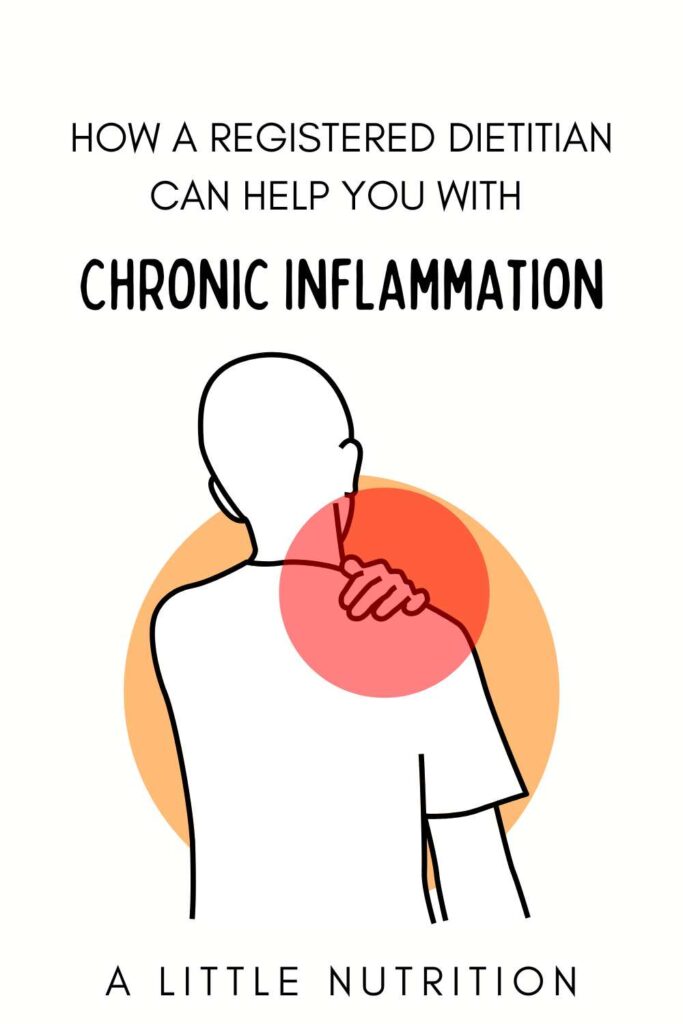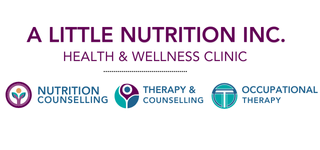What is Inflammation?
To understand what chronic inflamaation is, we must review inflammation first. Inflammation is the body’s way of protecting itself from harm and foreign substances.
There are two main types of inflammation:
- Acute Inflammation – [short-lived physiologic response] You will notice acute inflammation when you cut yourself, get an injury, or have an infection. This is helpful because acute inflammation helps the body fight infections and speeds up the healing process.
- Chronic Inflammation – [long-term physiologic response] Chronic inflammation is when your immune system believes there are foreign substances in the body and can cause ongoing symptoms. Sometimes your body will produce inflammation even when it is not needed. Resulting in inflammation no longer be helpful and may cause discomfort.
What May Cause Chronic Inflammation?
Health conditions such as stroke, chronic respiratory disease, heart disease, cancer, and diabetes may contribute to chronic inflammation. All body sizes can experience chronic inflammation.
Risk Factors Associated with Chronic Inflammation
There are many factors that may increase your risk of experiencing chronic inflammation including:
- Age – as you get older, your risk of chronic inflammation increases.
- Food – eating foods high in saturated or trans fat and refined sugar may be related to increased inflammation.
- Smoking – this can lower the anti-inflammatory components in the body which may increase inflammation.
- Hormones – some studies have shown that testosterone and estrogen may play a role in inflammation when levels are not normal.
- Stress and irregular Sleep – stress and sleep disorders may put you at higher risk for chronic inflammation
What Does Inflammation Look Like In The Body?
The signs and symptoms of chronic inflammation can be different for each person. However, the most common ways that inflammation may be experienced in the body include:
- Feeling tired and/or little energy
- Depression and anxiety
- Headaches
- Confusion or difficulty focusing/concentrating
- Gastrointestinal issues such as diarrhea and constipation
- Changes in appetite
- Weight loss or weight gain
- Body pain and swelling
Testing for Inflammation In the Body
There is a test that your doctor can request to determine if inflammation is present in the body and to monitor conditions related to chronic inflammation. The test is called a C-reactive protein (CRP) test and it measures the levels of C-reactive protein in the blood. This protein is an indicator of inflammation levels in the body. Keep in mind that the test cannot tell you what is causing inflammation or where the inflammation is, but it can determine if inflammation is present.
Managing your Diagnosis
Your doctor may prescribe medications to help with relief of ongoing symptoms related to chronic inflammation. However, nutrition may also play a role in the management of your condition. The nutritional recommendations for chronic inflammation are often compared to the Mediterranean pattern of eating which is a diet high in fish, vegetables, whole grains, beans, legumes and healthy oils. These foods contain compounds that can help with the symptoms of inflammation.
How To Treat Chronic Inflammation with Nutrition
There are many foods that are believed to be anti-inflammatory or may help with the symptoms of inflammation:
- Add Omega 3 to your diet by eating 2 servings of fatty fish (such as salmon, trout, sardines or other cold-water fish) per week or by taking an Omega 3 supplement of 600-900 mg EPA/DHA daily.
- Add ¼ cup of nuts or seeds per day for healthy monounsaturated fats.
- Choose to eat lean cut meats as opposed to highly processed meats as they may promote symptoms of inflammation.
- Try eating more plant protein such as beans, legumes and lentils as these foods contain antioxidants and anti-inflammatory compounds.
- Use olive oil in cooking and for salad dressings as it contains oleocanthal, which is a natural compound that can help with symptoms of inflammation.
- Eat fruits and vegetables at every meal that are high in antioxidants and polyphenols such as blueberries, apples, strawberries, and leafy greens.
- Increase your fibre intake by making meals with whole grains such as quinoa, oatmeal, brown rice and whole wheat products as fibre helps to lower c-reactive protein, which is a substance in the blood that indicates inflammation.
- Eat less processed foods and foods higher in sodium as they may contribute to symptoms of inflammation. This doesn’t mean cut all processed foods out of your eating, as these foods are delicious and consuming is part of balanced eating.
- Drink plenty of water daily to keep your body and cells hydrated.
- Make sure to incorporate joyful movement of your body or regular exercise to your daily routine to help with movement, energy, and general well-being.
When Should You Consider Meeting With A Registered Dietitian?
Dietary changes may help decrease the symptoms of chronic inflammation. If you are interested in making dietary changes to see if they can help with the management of your condition, it may be time for you to speak with a Registered Dietitian. Registered Dietitians can help you navigate the world of nutrition and provide you with individualized support and recommendations. They will work with you to help find the nutritional plan or pattern of eating that works best for you and your lifestyle.
What Our Dietitians Can Do For You
During your initial appointment, you will receive an 80-90 minute session with a knowledgeable and compassionate Registered Dietitian that will help you feel supported and educated. Your Dietitian will:
- Clear up the confusion surrounding what, when and how much to eat to help you manage the symptoms of chronic inflammation
- Assist you with meal planning to help you optimally manage your symptoms
- Advocate and/or communicate with your primary healthcare Team, doctor or specialist.
- Explain the basics of chronic inflammation, myth bust and provide you nutrition recommendations.
- Help you manage emotions related to making the changes required to improve your health and quality of life.
- Empower you to manage your health by understanding how to grocery shop, read nutrition labels, and prepare meals that you enjoy.
- Provide you with cooking tips, meal prep guidance, recipe modifications, and snack ideas.
Benefits of Working with a Dietitian at A Little Nutrition
We want you to feel better about how you nourish your body, and help you learn how to incorporate foods that can improve your symptoms of chronic inflammation and overall well-being. A Little Nutrition is a safe place to receive non-judgemental health advice and guidance.
Our Registered Dietitians provide a weight inclusive approach to health care and will support you on your nutritional journey. When you work with one of our team members, you can consider them your personal food encyclopedia and get expert advice on your nutrition questions. Your dietitian will get to know you, and how you eat, your food preferences, intolerances, and provide you with a personalized plan of action to help improve your symptoms.
Your dietitian also understands that eating and food may be an emotional experience for you, and will help you assess your relationship with food. If you have a poor relationship with food, your dietitian can help guide you through the process of making peace with food and resolve emotional eating.
No matter where you are at in your health journey, your dietitian will be able to help you with the motivation, support and accountability to help reach your goals.
Nutritional Services Overview
How many visits are recommended to see changes in my health?
Short answer: Most of our clients report seeing markable changes in their eating and health after 3 to 5 appointments spaced out over 3 to 6 months. However, some clients require appointments every 2 weeks until they can get the hang of their new pattern of eating. Some clients only need 1 or 2 appointments. Your dietitian will give you a recommended treatment plan at your initial appointment.
Long answer: It really depends on the number of health and lifestyle concerns that need to be addressed. Additional skills and education around meal planning, meal preparation and grocery shopping may require extra time in order to implement and develop strong habits. In addition, there may be emotional underpinnings that are discovered during your meeting with the Registered Dietitian such as dieting trauma, emotional and stress eating, and poor body image and these may need to be worked through as well. Also, we have counsellors and therapists who can help you work through the everyday challenges of stress management, anxiety, depression, grief and relationship struggles. Psychotherapy is another tool that creates success when it is combined with health behaviour changes.
Are my appointments covered by Manitoba Health or Extended Medical Health Insurance?
Manitoba health does not cover private Registered Dietitian services. However, if you have extended medical insurance through your employer, you may have coverage for Registered Dietitian and Therapist services. If you are uncertain about your coverage, you can call our office 1-204-515-7466 and we can look into it for you. In addition, if your plan allows for direct billing, we would be happy to directly bill your appointment and keep the out-of-pocket expense as low as possible.
How much do nutrition appointments cost?
Initial appointments are 80-90 minutes in length and cost $190
Follow-up appointments are 50-60 minutes in length and cost $135
How do I book an appointment with a Registered Dietitian?
To book an appointment with one of our Registered Dietitians or Therapists you can:
Phone: 204-515-7466
Email: admin@alittlenutrition.com
Book online: https://alittlenutrition.janeapp.com/
Pin Me For Later

References:
Pahwa, R., Goyal, A., Bansal, P., Jialal, I. (2021). Chronic Inflammation. Treasure Island (FL): StatPearls Publishing; 2021 Jan. Accessed from: Chronic Inflammation – StatPearls – NCBI Bookshelf (nih.gov)
Harvard Health Publishing; Harvard Medical School (2021). Foods that Fight Inflammation. Accessed from: Foods that fight inflammation – Harvard Health
C-Reactive Protein (CRP) Test Overview. MyHealth.Alberta.ca. 1995-2021 Healthwise Incorporated. Accessed from: C-Reactive Protein (CRP) (alberta.ca)

 ABOUT US
ABOUT US BOOK AN APPOINTMENT
BOOK AN APPOINTMENT LOCATION & CONTACT US
LOCATION & CONTACT US EMPLOYMENT
EMPLOYMENT



 HOW TO REFER A PATIENT
HOW TO REFER A PATIENT ALN ACADEMY
ALN ACADEMY VIRTUAL GRAND ROUNDS – EATING DISORDER CASES
VIRTUAL GRAND ROUNDS – EATING DISORDER CASES CLINICAL NUTRITION MENTORSHIP & SUPERVISION
CLINICAL NUTRITION MENTORSHIP & SUPERVISION




